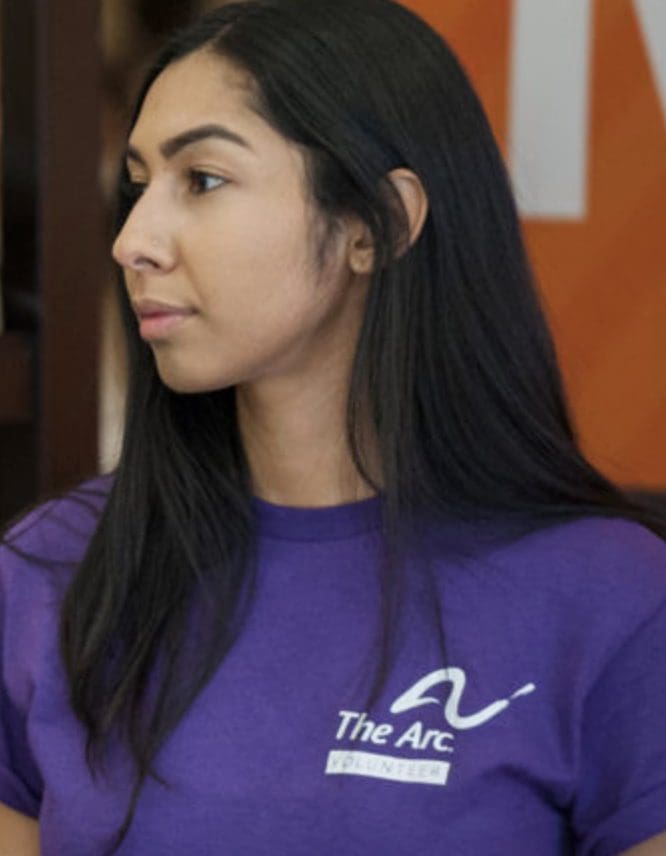Search Posts
Recent Posts
- Real Estate in RI: Seaside waterfront communities are all the rage. Who’s buying – Emilio DiSpirito June 6, 2025
- Outdoors in RI: 2A votes, Charter Yachts, active summer programs, garden tours, aquatic weeds… June 6, 2025
- All About Home Care, with two Rhode Island locations, closing after 22 years in business June 6, 2025
- GriefSPEAK: Angel wings with footprints – Mari Nardolillo Dias June 6, 2025
- Rhode Island Weather for June 6, 2025 – Jack Donnelly June 6, 2025
Categories
Subscribe!
Thanks for subscribing! Please check your email for further instructions.

The Arc Rhode Island comes back into action – Gina Macris
By Gina Macris, Developmental Disabilities News, for RINewsToday
The Arc Rhode Island, a once powerful advocacy organization for those with developmental disabilities, has come back into action during the last two years under the wing of The Arc of the United States.

The state organization, which had been dormant for a decade, has grown into an office of four during the last two years. Under the leadership of Joanna Scocchi, it has revived not only its legislative advocacy but it offers support to parents facing special education issues and facilitates partnership-building activities in the community, sometimes one person at a time.
A case in point is the young man who agreed to go out to a Saturday lunch in Newport with his brother and his brother’s girlfriend only on the condition that he could be back home in front of his computer screen in time for his late afternoon “Chat Saturday,” an online social circle.
“People look forward to the day they will have a circle,” says Ken Renaud, associate director of The Arc.
“Chat Saturday” is but one facet of “Circles of Connections,” The Arc’s person-to-person response to the isolation of the COVID-19 pandemic that Renaud said he knew “was going to be really intense for the people with developmental disabilities and their families.”

Circles of Connections, which had a soft launch last fall, matches small numbers of people with facilitators around common interests, like special education eligibility and advocacy, family dynamics, and various facets of the transition from school to adulthood, a period that is commonly fraught with anxiety for both young people and their families.
The Circles have generated spinoffs, like a virtual movie outing that grew out of Chat Saturday and a group session with a therapist organized by a participant in another Circle called “The Other Side of Grief,” Renaud said.
“I like it when you have that seed of an idea, and you plant the seed, and it germinates, and you see it grow,” he said of the evolution of Circles of Connections during the last six months.
The “Circles” concept could serve as a model for building friendships after the pandemic, says Kevin Savage, the state’s Director of Developmental Disabilities.

“People are genuinely connecting with one another,” Savage said, noting that some of the groups are led by adults with disabilities.
“The Arc of Rhode Island and others who have supported this effort deserve enormous credit,” he said.
Darlene Faust, facilitator for a Circle focused on healthy relationships, agreed with Savage, saying her experience has been gratifying on a personal and professional level.
The healthy relationship Circle has provided a “safe way for people to socialize and have new friendships and actually take part in some meaningful conversations,” she said. It has “redefined the way that I want to do the work that I do post-Covid.” Faust works as Director of Self-Advocacy and Work Preparedness at Looking Upwards, a service provider.
The connections the Circles make on a personal level reflect the core mission of The Arc as a catalyst for family support and advocacy efforts intended to make the community a welcoming place for people with developmental disabilities.
In 2018, the national organization tapped Scocchi to lead the Rhode Island effort, at first on a part-time basis. Scocchi had moved to Rhode Island from New Jersey twelve years earlier as the mother of a young child with developmental disabilities. A former CEO of a human resources staffing agency, she was then in her forties. She had never dealt with special education issues.
But her advocacy for her son grew into into a one-woman non-profit organization called Rhode Island Advocacy For Children, providing one-on-one help for about 200 families a year.
When The Arc of the United States approached her about re-starting a state chapter, Scocchi insisted on bringing the special education advocacy program with her.
Scocchi’s organization continues as a program of The Arc, now under the direction of Mary Lou Rossi. It fits right in with the vision of the national organization.

“Our focus as an organization is all people, not just those receiving services through the developmental disability system,” Peter Berns, CEO of The Arc of the United States, explained in a telephone interview.
“So much of the advocacy is focused on the service system, but on a national average, only 20 percent who need help get it through the service system,” he said.
People with developmental disabilities should be valued members of their communities, with the supports they need to realize their potential and have a secure future, he said.
Scocchi says she is driven by a passion for equity and has received invaluable support from the national organization, as well as help from local leaders in tapping into an increasingly collaborative network. At the top of The Arc’s legislative agenda this year is a bill, recently introduced by Rep. Lauren Carson, D-Newport, and others, to create an ombudsman charged with ensuring school districts meet special education requirements.
In addition, adult service providers, advocates, and the state Department of Behavioral Healthcare, Developmental Disabilities and Hospitals (BHDDH) have begun working closer together to respond to both the COVID-19 pandemic and to the demands of the 2014 Olmstead consent decree. Since last August, five committees organized by BHDDH have been working on court-ordered plans to overhaul the developmental disability service system to meet the inclusive goals mandated by the consent decree.
Scocchi spends a lot of time on the phone or in online meetings, keeping connected on a weekly basis, or more frequently, with other disability organizations, BHDDH officials, and Arc leaders in Washington.
Renaud, meanwhile, is reviving a mentorship program for emerging leaders in disability-related fields to lay the groundwork for the kinds of partnerships that will be necessary to open doors in the community for adults with developmental disabilities who are trying to plan their own futures, as required by the consent decree.
For example, disability rights advocates need to enlist the business sector as a whole to support job opportunities mandated by the consent decree for those facing intellectual and developmental challenges, Renaud said.
Called the Rhode Island Facilitator Forum, the new mentorship program had its first online meeting Feb. 12 with about 30 participants, Renaud said. He ran a similar group as part of PAL (Parents And Friends for Alternate Living), an advocacy organization that fell victim to the severe state budget cuts of 2011 that adversely affected those with developmental disabilities and their families across the board.
“I can’t think of a better time to bring this back together,” Renaud said. In the months ahead, the program will work with the Rhode Island Developmental Disabilities Council, the Sherlock Center for Disabilities at Rhode Island College, and experts from outside the state to focus on ways to create a welcoming community for those with developmental disabilities, Renaud said.
The Arc in Rhode Island had been dormant since 2008, the twilight of a forceful movement in which the state became the first in the nation to deinstitutionalize people with developmental disabilities.
By 2014, with Rhode Island ranked at the bottom of states for its support of people with developmental disabilities, community leaders begun approaching The Arc of the United States to help revive the organization and its role as advocate. Scocchi opened an office in North Kingstown on a part-time basis in 2019 and went fulltime a year later.
The Arc of the United States works with the Rhode Island chapter as a full-fledged affiliate of the national organization, an approach CEO Berns said is intended to buttress it against adversity long term. With the national organization handling operations, including the website and financing, the four-person staff led by Scocchi and Renaud can focus on advocacy, education, and support.
Berns said the same approach has been used in reviving statewide chapters in Arizona, Wisconsin, and Georgia, as well as the District of Columbia, where the national headquarters is located.
“We’re pleased in how it has played out in all four states,” Berns said.
“In a relatively short period of time, we’ve gone from The Arc having faded out of view in all those states,” he said, “to re-establishing a presence for education and advocacy for those with developmental disabilities.”
The biggest challenge in all four states is for the chapters to become financially self-supporting by attracting public and private funding from government agencies, business and foundations within their jurisdictions, he said.
“We are making progress in that area,” he said, although he did not offer specifics. Berns indicated that if the affiliate model is successful, it could be used in the 10 states where The Arc does not have a state chapter or office.
_____

Gina Macris is a career journalist with 43 years’ experience as a reporter for the Providence Journal in Providence, RI. She retired in 2012. During her time at the newspaper, she wrote two series about her first-born son, Michael M. Smith. Both series won prizes from the New England Associated Press News Executives Association. Michael, now in his 30s, appears on the cover page, in front of the Rhode Island State House.
